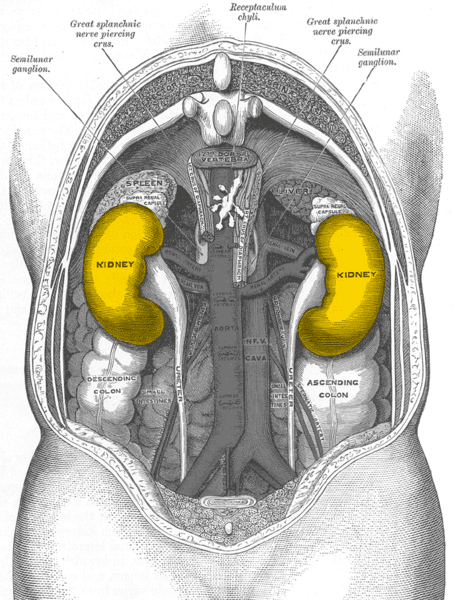Technion and Rambam Medical Center researchers discovered a gene involved in an increased risk of kidney disease in people of African descent

Professor Karl Skortsky from the Rappaport Faculty of Medicine at the Technion, and director of medical development and research and a nephrologist at Rambam Hospital, explains that chronic kidney disease affects the lives of millions of people around the world. Chronic kidney disease causes many symptoms and health problems and may eventually lead to kidney failure, which requires dialysis or a transplant in those areas of the world where these treatments are available. These essential treatments are expensive, and although they are life-saving, patients still suffer from a decrease in life expectancy and quality of life. It is estimated that among the half a million dialysis patients in the US, citizens of African origin have a four times greater risk of developing kidney disease, and those of Hispanic origin - the risk of developing kidney disease is twice greater relative to the general population. The study shows that the APOL1 gene, a component of the lipid-carrying particle HDL, is involved in the increased risk of kidney disease in that population.
The discovery sparked great interest in the global scientific community, which seeks to find the genetic link that creates an increased risk among the African population for kidney disease and needing dialysis or a transplant. Identifying the correct gene that increases the risk is necessary for understanding the underlying cause of that increased risk, and will allow strategies to be developed to prevent or slow down kidney failure. In the last two years, dozens of studies have focused on the gene known as MYH9, as the gene responsible for these differences between populations, but no mutations that may be responsible for this relationship have been identified. Because of this, the Technion and Rambam researchers decided to look beyond MYH9, through a computerized examination of a database known as the "Thousand Genomes Project". The information collected, together with results obtained in DNA analysis of 955 African-Americans and Hispanic-Americans and 676 people from 12 communities in Africa, led the researchers to specific genetic changes in the APOL1 gene, as causes (and not just genetic markers) of the increased risk of kidney disease among immigrants West Africa. A key element in identifying the mutations in APOL1, in the context of renal failure, was the absence of these mutations in the 306 Ethiopians examined. Some of the authors of the current article have previously reported that Ethiopians are relatively protected from kidney disease. The present discovery provides a biological explanation for this protection. The increased frequency of the mutations in West Africa was probably due to the fact that the same mutations that endanger their subjects with kidney disease today, provided protection against infectious epidemics in the past.
The aforementioned mutations in APOL1 apparently change the form and function of proteins encoded by the gene, thus opening a window for the development of treatments and prevention methods, in the hope that this will reduce the need for dialysis and transplantation and increase the life expectancy of kidney patients. In addition, these findings open a new field of research - the study of the APOL gene family for kidney diseases in general, and for the discovery of rarer mutations in genes from the APOL family, which may also cause kidney diseases in many population groups.
The APOL1 gene is known for its involvement in resistance to African sleeping sickness - a disease caused by parasites that attack the brain and eventually cause coma and death. This disease is still widespread in some areas of Africa, and is considered a major cause of death in Africa. These facts led researchers to speculate that an increased risk of kidney failure among people of African descent living in North America today may be related to the protection provided by genetic changes in the APOL1 gene against African sleeping sickness and possibly other diseases.
The Technion and Rambam researchers say that immediate medical consequences related to the scan are early identification of the risk of kidney failure, understanding the cause of hypertension in risk populations, genetic testing of APOL1 in kidney transplants from risk groups, and an increased emphasis on lowering environmental risk factors for kidney failure in risk groups by F. Genetic testing. The challenge in future studies is to expand the epidemiological, biological and medical links between variations of the APOL1 gene and the risk of a wide spectrum of kidney diseases, and to arrive at preventive treatment based on biological understanding.
